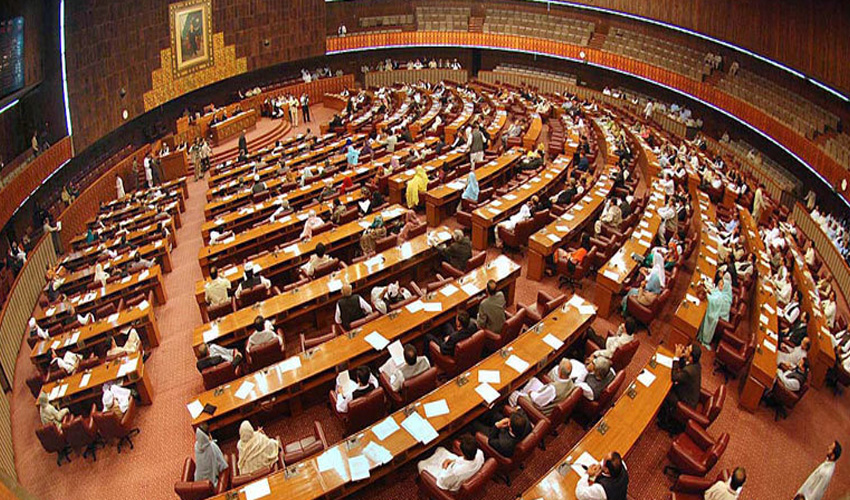A session of the National Assembly is expected to be convened on October 18 or 19 to approve the proposed 26th constitutional amendment.
Sources revealed that the National Assembly Secretariat has been directed to make preparations for the crucial meeting.
The amendment aims to bring reforms to the judiciary, a move that has sparked significant opposition from the Pakistan Tehreek-e-Insaf (PTI). Despite this resistance, the ruling coalition is pressing ahead with its legislative agenda.
The constitutional amendment bill requires a two-thirds majority—224 votes—for approval in the 342-member National Assembly. However, the ruling coalition's strength currently stands at 215 members, falling short of the required number.
The breakdown includes 111 members from the Pakistan Muslim League-Nawaz (PML-N), 70 from the Pakistan Peoples Party (PPP), 22 from the Muttahida Qaumi Movement (MQM), five from the Pakistan Muslim League-Quaid (PML-Q), and smaller contributions from other allied parties such as the Balochistan Awami Party (BAP), Pakistan Muslim League-Zia, and the National Party.
In light of the ruling coalition’s numbers, political experts suggest that the recent Supreme Court decision on Article 63-A, which allows the votes of dissident members, could play a pivotal role in achieving the required majority.
The government may attempt to sway members aligned with PTI to secure their votes for the amendment.
Jamiat Ulema-e-Islam-Fazl (JUI-F) leader, Maulana Fazlur Rehman, has emerged as a key figure in this political equation. His party’s support could prove critical in ensuring the bill’s passage.
Yesterday, Maulana Fazlur Rehman stated that consensus had been reached on the draft of the constitutional amendment. Today, he is expected to meet PPP Chairman Bilawal Bhutto Zardari and will meet PML-N leader Nawaz Sharif tomorrow to further consolidate his party's stance.



























